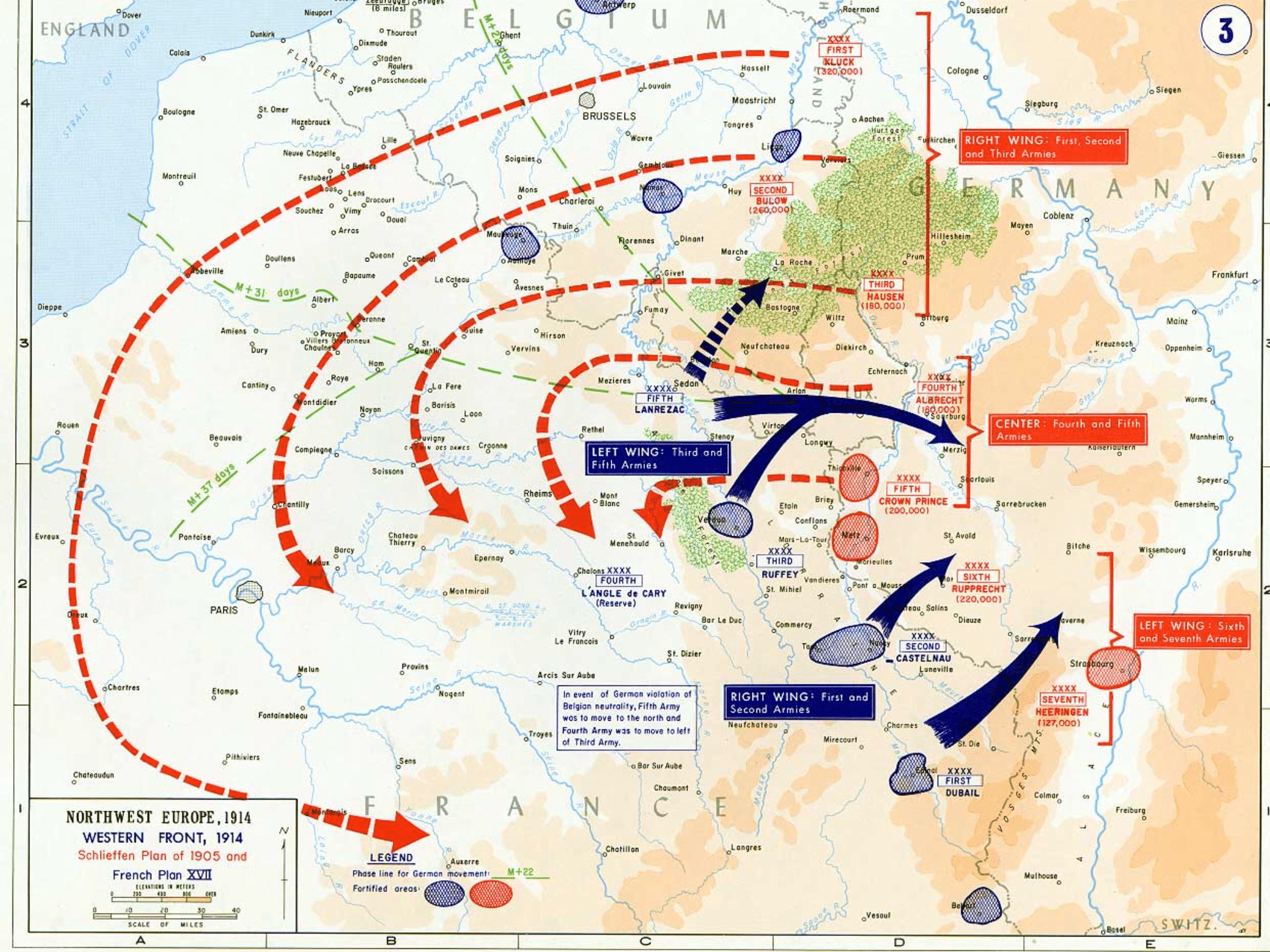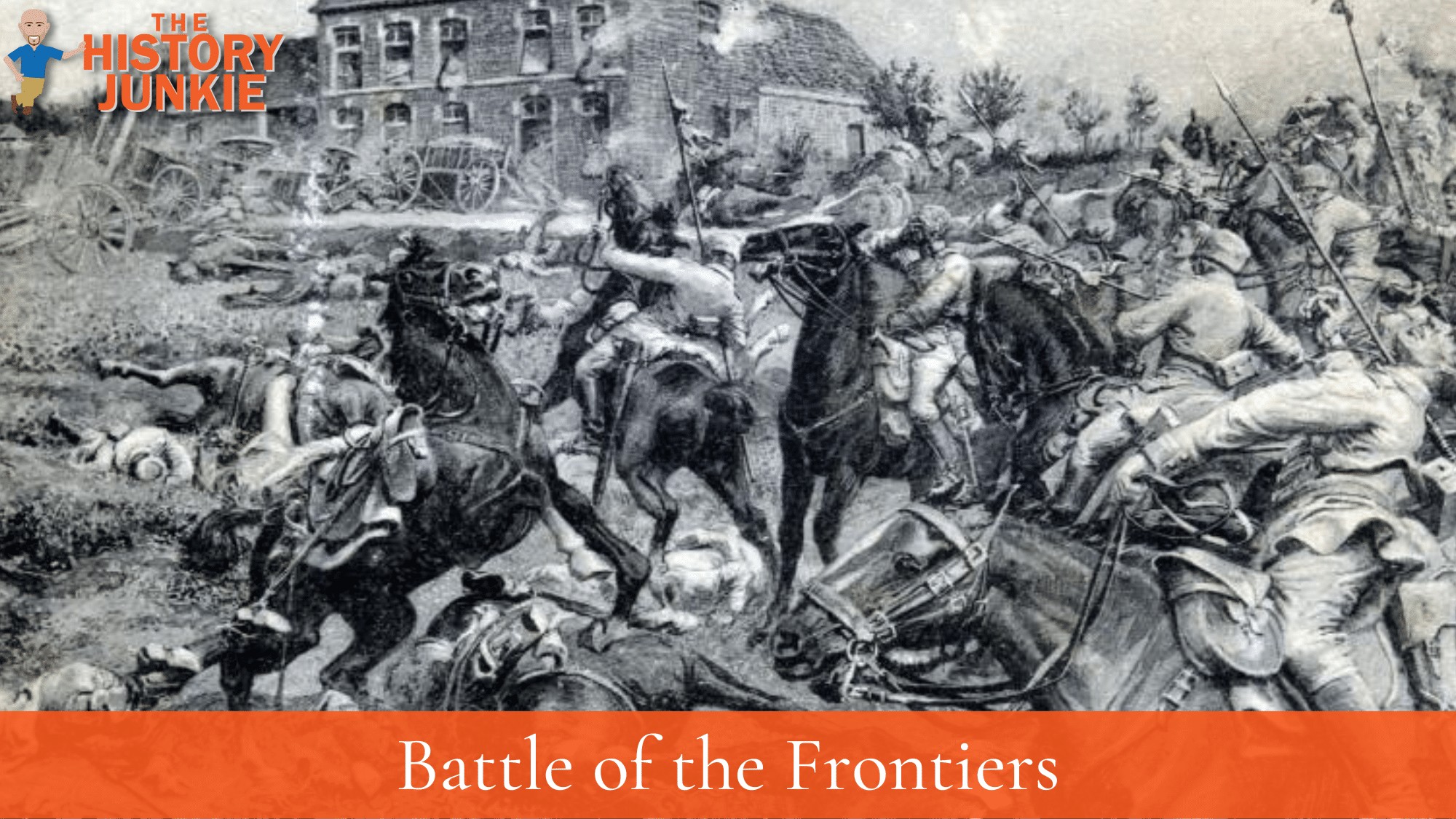After the French's reputation took a hit during the Franco-Prussian War, Ferdinand Foch and Commander-in-chief Joseph Joffre developed Plan XVII. This would be the initial plan used in World War 1.

Plan XVII's primary goal was to recapture the territory of Alsace and Lorraine that had been lost in the previous war.
A naive belief in the French fighting spirit's ability to defeat any opponent led to the development of this purely offensive attack. The French belief that their men would be better fighters than the Germans proved to be false.
Plan XVII Tactics
Plan XVII was an aggressive approach that asked for an advance of four French Armies into their once-held land Alsace-Lorraine, which was now occupied by the German forces.
The French southern army would advance and capture Alsace and Lorraine, while the northern army would gauge the movement of the Germans and proceed into the Ardennes forests, which would give them cover while marching into Germany. If this way was blocked, then the army could choose to head into Luxembourg and Belgium.
The French plan was aggressive and did not take into account a German offensive. The lack of defensive preparation left the French vulnerable if the Germans found their attack successful. The Germans would march through Belgium and attack the French before the war was declared.
During the German attack, the French found it difficult to muster a force that could push the Germans back. The Germans successfully invaded Belgium and soundly defeated the French. The Germans did this in spite of the threats.

French intelligence had provided accurate numbers of the German Army, but the French inability to effectively use their reserve troops again made them vulnerable, and Germany quickly overwhelmed them with their own plan, The Schlieffen Plan, which almost caused a quick defeat.
Plan XVII was a nightmare, and their objectives were not met. The German's Schlieffen Plan would be effective during the beginning months but would stall later.
The Battle of the Frontiers would follow the initial surge by the Germans.

